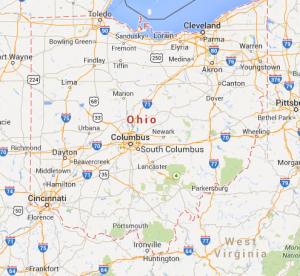When History and Heritage Become Personal
By Tom Morain of Lamoni, IA, USA

Listen carefully to your own journey as a people, for it is a sacred journey and it has taught you many things you must know for the journey yet to come. Listen to its teachings and discover anew its principles. Do not yearn for times that are past, but recognize that you have been given a foundation of faithful service, even as you build a foundation for what is yet to be. —Doctrine and Covenants 162:2a, b
From his time as a 19-year-old farm hand in southwest Iowa through his appointment as a counselor to President Israel A. Smith four decades later, the church was at the center of the life of John Garver. In 1908, he began a diary to record the events of his first assignment as counselor to the Lamoni Stake President.
I took a personal interest in the diaries because John Garver is my grandfather and because I am a historian by profession. His accounts of experiences with the Divine—prophecies, revelations, divine healings—captured my attention. Did they happen the way he described them?
One episode in particular became a test case of how a historian must deal with that question. After preaching in a small congregation many miles from Lamoni, a local member loaned him a horse. It was January, and the weather was bad. By late afternoon, he reached his in-laws’ farm. By that time, the horse was sick, in “agony,” and lay down in a barn stall while two men went to town for some medicine. Nearly penniless, Garver feared the horse, valued around $200, would die before they returned. He wrote in his diary:
“I went down on my knees in the stall next to the horse, presented the situation to God, pled for his help and a manifestation of his divine power on behalf of the needs of his children. Shortly after I arose, the horse also arose, shook himself, began chomping at the hay before him. When the men returned, they were surprised to see him improved.”
I read and reread the passage. How, I wondered, do I deal with that information honestly as a historian, asking the questions I would ask if the source were not my grandfather or another revered church figure? What happened? Was the horse physically sick or just winded with a sore throat? Did it just get up immediately after Garver prayed for it? Can I simply take the word of one who so much wanted to believe in himself as a young minister eager to confirm his worthiness as an appointee? Above all, what does historical objectivity mean when we give God a role in the plot?
Do the answers tell me anything important about John Garver or anything else? I came to accept the tools of the historian cannot confirm or deny Garver’s account. I came to understand the historian does not ever see God directly in history but only secondhand through the accounts of people who claim to have experienced God directly. The historian always sees “through a glass darkly.”
So is there a value in history? Surely! History can tell us what impact that event had on the life of John Garver. It also becomes a springboard to the creative frustration of contemplation. For me, the essence of the Restoration is that God does play a role in human history and actively creates the world meant to be. But how? For me, the individual can have personal experiences with the Creator of the Universe. Can that happen in my life? Will it happen? How?
History teaches us to ask better questions. While I will never know for certain what I would have seen and understood had I been in that stall with Grandpa and the horse, I do know taking time to wonder enriches my faith.
Prayer for Peace
“Teach me, God, to wonder, teach me, God, to see.
Let your world of beauty capture me.
Let me, God, be open, let me loving be.
Let your world of people speak to me.”
—“Teach Me, God, to Wonder,” by Walter Farquharson, © Walter
Farquharson, Community of Christ Sings 176
Spiritual Practice: Encountering Scripture as Continuing Revelation
Read and pray with Doctrine and Covenants as Continuing Revelation of God’s vision for the church and creation. Choose a favorite passage or focus on counsel in Sections 156–164. Read a few selected paragraphs slowly three or four times. Pause to pray for deep understanding after each reading.
Peace Covenant
Today, God, I will ask better questions and take time to wonder at what I find.



